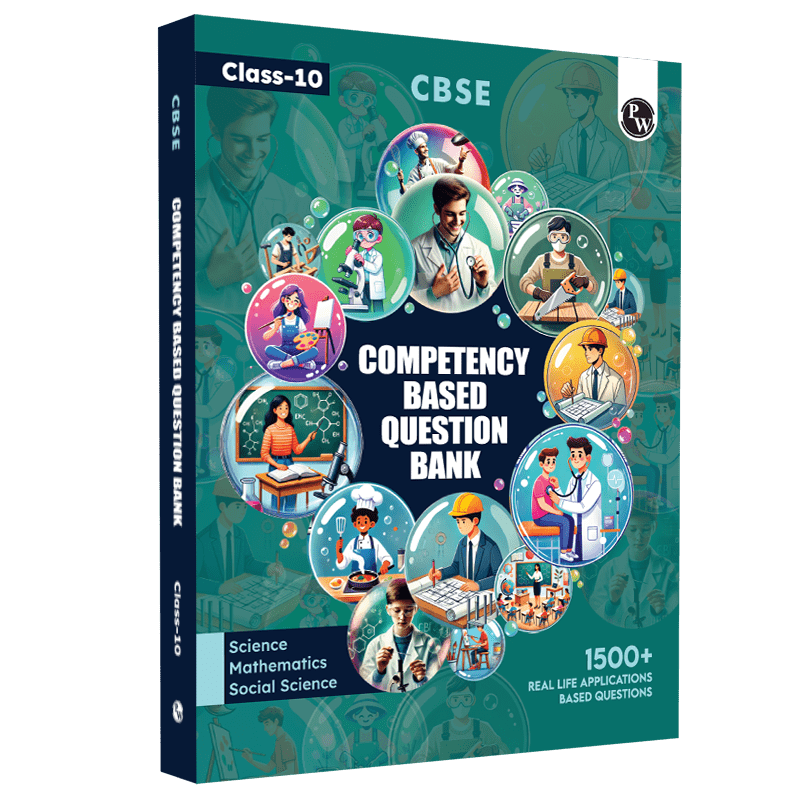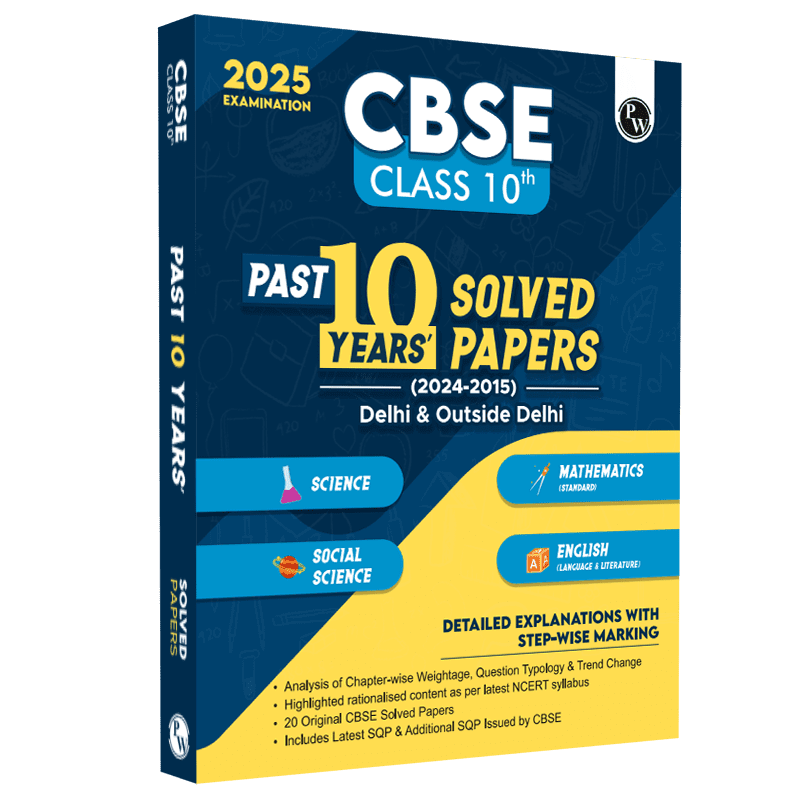How to Score Well in Class 10: 5 Study Tips You Need

How to Score Well in Class 10:- Scoring well in Class 10 board exams is a goal that requires dedicated preparation, effective strategies, and time management. If you're wondering how to prepare for board exams, the answer lies in smart planning and focused effort. To know how to study for board exams Class 10, it’s important to start early, understand the exam pattern, and focus on key subjects.
This guide will provide you with tips for 10th board exam preparation, including how to prioritise your studies, tackle difficult topics, and make the most of your revision. With the right Class 10 preparation tips for 2024 and topper study tips for Class 10, you can boost your performance and confidently approach the exams. Additionally, knowing how to write board exam papers Class 10 and practicing with past papers can give you a distinct advantage
How to Score Well in Class 10: 5 Study Tips You Need
Preparing for your Class 10 board exams can seem overwhelming, but with the right approach and a focused plan, you can succeed with ease. Here are some essential 10th board exam preparation tips to help you through the process. These tips will not only boost your confidence but also help you score better in your exams.
1. Create a Study Timetable
Planning is the key to achieving your goals. How to prepare for board exams in class 10 requires a structured approach. Create a Class 10 study timetable that includes specific times for each subject and topic. Divide your day into manageable slots and allocate time for school, coaching, assignments, and revision.
Focus on your weak areas by dedicating more time to them, but ensure your timetable isn’t too overwhelming. Class 10 Preparation Tips 2024 suggests that a balanced study schedule can help you study at a consistent pace and keep your confidence high.
2. Solve Previous Year’s Question Papers
One of the most effective exam preparation tips is practising with the previous year’s question papers. These papers help you understand the exam format and the types of questions asked. Aim to solve as many sample papers and past papers as you can.
How to study for board exams class 10 effectively includes practicing in real exam-like conditions, which will improve your speed and accuracy. This practice will also help you identify any gaps in your preparation, giving you the chance to correct them.
3. Make Time for Revision
Revision is crucial to solidifying the information in your memory. How to prepare for board exams involves thorough revision of all subjects, starting well before the exams. Aim to solve as many CBSE Class 10 Question banks and Sample papers as you can.
Allocate time for revising each chapter, especially the important areas. Topper study tips for class 10 emphasize revising difficult topics multiple times. Create a revision plan and stick to it, focusing more on complex topics while keeping easier ones in review.
4. Take Regular Study Breaks
How to prepare for 10th board exam effectively isn’t just about non-stop study; it's about maintaining focus and energy. Studies show that the human brain loses concentration after long study sessions. Instead of sitting for extended periods, take regular study breaks.
A 5-minute break every 1 hour can help restore focus. Use this time for stretching, walking, or eating something healthy. This routine will keep your brain refreshed and ready for the next session.
5. Make Brief/SMART Notes
Tips for 10th board exam preparation suggest creating smart notes using bullet points, diagrams, and flowcharts. These brief notes help summarize important facts, formulas, and key concepts.
Keep your notes handy so that you can quickly revise them during spare moments throughout the day. This will significantly improve your recall ability, making last-minute revisions much easier and more effective.
6. Practice Writing
As Class 10 exams are subjective, it’s essential to practice writing long answers. Practising writing will help you develop a consistent writing speed, which is crucial for completing your exam within the time limit.
Rehearse answering questions in the exact format expected in the exams. How to write board exam paper class 10 involves not just knowing the answers but also practising clear and concise presentation.
Check out: CBSE Class 10th Sample Papers
Subject-Wise Study Tips for Class 10 CBSE
Preparing for the Class 10 CBSE board exams requires a well-rounded study plan cafted to each subject. Each subject has its own unique challenges, but with the right approach, you can excel in all of them. Here are some subject-wise study tips that will guide you through your board exam preparation.
1. Mathematics
Mathematics can be challenging for many students, but it is also one of the highest-scoring subjects if approached with the right strategy.
-
Understand the concepts: Focus on understanding the fundamental concepts rather than just memorizing formulas.
-
Practice regularly: Solve a variety of problems, especially from previous year's papers and sample papers. The more you practice, the better your speed and accuracy will be.
-
Focus on important chapters: Some chapters like Quadratic Equations, Trigonometry, and Statistics are scored and frequently asked in exams.
-
Write clearly: Practice writing step-by-step solutions clearly, as neat and precise answers fetch more marks.
2. Science (Physics, Chemistry, Biology)
Science is a subject that combines theory with practical application. Here are the tips to excel in each of the three sections:
Physics:
-
Understand the concepts: Focus on understanding the principles behind each topic. Concepts like Newton's Laws of Motion, Electricity, and Magnetic Effects are crucial.
-
Solve numerical problems: Physics often involves calculations, so practice solving numerical problems from each chapter.
-
Use diagrams: Draw diagrams wherever necessary, as they make your answers clearer and fetch additional marks.
Chemistry:
-
Learn the formulas and reactions: Memorize important chemical equations, reactions, and their mechanisms.
-
Focus on concepts: Topics like Acids, Bases and Salts, Periodic Table, and Carbon Compounds are crucial. Understand the concept behind each reaction.
-
Practice writing equations: Writing clear and correct equations is essential for chemistry exams.
Biology:
-
Use diagrams: Biology involves many diagrams, so practice drawing and labelling diagrams like the human heart, photosynthesis process, and structure of cells.
-
Focus on definitions and processes: Learn important terms, definitions, and processes. Revise topics like Reproduction, Heredity, and Human Physiology.
-
Understand the flow of processes: For example, understand the process of digestion or circulatory systems rather than memorizing.
3. English
English can be tricky, especially in the writing and literature sections. Here's how you can approach it:
-
Read the chapters thoroughly: For the literature section, read all the chapters in your NCERT book thoroughly. Focus on important quotes, themes, and character sketches.
-
Practice writing essays and letters: For the writing section, practice writing formal and informal letters, essays, and descriptive writing regularly.
-
Learn the format: Make sure to memorize the correct format for different types of writing tasks like notices, emails, and letters.
-
Work on vocabulary and grammar: Revise grammar rules and expand your vocabulary to make your answers more impactful.
4. Social Science
Social Science (History, Geography, Civics, and Economics) requires a strategic approach to remembering facts and concepts.
History:
-
Make timelines: Create timelines for important events in history to visualize the sequence of occurrences.
-
Focus on key events: Concentrate on major historical events, personalities, and dates.
-
Understand cause and effect: Understand the causes and consequences of historical events rather than memorizing them.
Geography:
-
Practice maps: Geography requires map work, so practice labelling maps and locating places.
-
Understand concepts: Focus on understanding physical features like climate, resources, and population rather than rote memorization.
Civics and Economics:
-
Understand theories: Focus on the concepts and theories in civics like democracy, governance, and fundamental rights.
-
Learn statistics: For Economics, be sure to learn the graphs, tables, and statistics used in chapters like production, consumption, and markets.
5. Hindi
Hindi is another important subject in the Class 10 CBSE board exams.
-
Focus on grammar: Practice Hindi grammar regularly, including samasa, sandhi, and vachan.
-
Learn poems and stories: Understand the summary and important themes of the chapters. Practice writing answers in your own words.
-
Practice writing essays: Work on writing essays and letters in Hindi, focusing on structure and clarity.
6. Second Language (Sanskrit, French, etc.)
For second languages like Sanskrit or French, the key is consistent practice.
-
Focus on grammar: Regularly revise grammar rules and sentence construction.
-
Practice writing: Write passages, essays, and letters to build fluency.
-
Learn vocabulary: Build a strong vocabulary by learning important words and phrases from your textbook.
Also read: Dos & Don’ts During Class 10 Board Exams 2024-25
How to Score Well in Class 10 FAQs
How can I prepare effectively for Class 10 board exams?
Ans. Create a study plan, revise regularly, practice sample papers, and focus on weak areas.
What are the good study tips for Class 10 board exams?
Ans. Start early, break topics into smaller parts, and practice consistently.
How do I manage my time for Class 10 board exams?
Ans. Stick to a timetable, allocate more time for difficult subjects, and take regular breaks.
How to tackle difficult subjects?
Ans. Break them into smaller topics, practice, and seek help if needed.
Why should I solve previous year’s papers?
Ans. It helps understand the exam pattern, improves time management, and boosts confidence.












